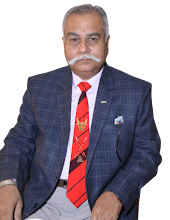By Lewis M. Simons NEWSWEEK
Published Nov 7, 2009
From the magazine issue dated Nov 16, 2009
When young Barack Hussein Obama lived with his American mother and Indonesian stepfather in Jakarta nearly 40 years ago, the Muslims of Southeast Asia were renowned for their moderation. Women may have covered their hair with a light scarf, but almost none veiled their faces. It was the rare Muslim man who grew a beard, and many drank with non-Muslim friends.
Published Nov 7, 2009
From the magazine issue dated Nov 16, 2009
When young Barack Hussein Obama lived with his American mother and Indonesian stepfather in Jakarta nearly 40 years ago, the Muslims of Southeast Asia were renowned for their moderation. Women may have covered their hair with a light scarf, but almost none veiled their faces. It was the rare Muslim man who grew a beard, and many drank with non-Muslim friends.
Today, as Obama prepares to meet with Southeast Asia's leaders in Singapore, all that, and more, is shifting. Moderation is suspect, as many of the region's quarter billion Muslims—more than in the Middle East—turn to the birthplace of Islam to reaffirm their religious identity. Though still a distinct minority, fundamentalists are demanding—and obtaining—a greater role for Sharia, or religious law, in family life and in the life of the nation.
In recent travel, I found signs of the drift throughout the region's five major Islamic centers: Indonesia, Malaysia, the southern -Phil- ippines, southern Thailand, and Singapore. Nowhere was it more jarring than Bulukumba, on the orchid-shaped Indonesian island of Sulawesi. With 350,000 people, mostly farmers whose holdings are shrinking as the population booms, Bulukumba is one of the poorest places on the island, and religious rule has supplanted the secular. In 2006 radical clergy, backed by sympathetic local politicians, military, and police officers, imposed Sharia over constitutional law. Today, Bulukumba is just one of more than two dozen such towns in the archipelago. Women are required to wear the jilbab, or headscarf. Wage earners are required to contribute 2.5 percent of their income as zakat, or alms. Children by the age of 7 must prove reading proficiency of the Quran in Arabic to qualify for elementary school. So must couples seeking approval to marry, and civil serv-ants applying for promotion.
Similar changes are happening in Malaysia. When I met with Prime Minister Najib Abdul Razak, I related this little story: in 1970, during a dinner party, my wife found herself dancing a quadrille with his father, then–prime minister Tun Abdul Razak, and I with his mother. A cloud crossed Najib's face. He peered directly at me over his wire-rim glasses and said nothing. Such behavior, we both understood, would be out of the question in today's Malaysia, now a proudly Islamic fundamentalist state.
Along the border, Muslims and Buddhists in southern Thailand are slaughtering each other. Since 2004, some 3,500 have been killed. The government in Bangkok says the Muslim fighters are common criminals. But in the city of Hat Yai, Monsour Salleh, a counselor to the militant Muslim Youth Association of Thailand, praised them as religious warriors. "The young generation of Muslims believes in jihad," he said. "They are good boys, dignified and committed, who study the Quran. They learn that if they fight to right injustice, they will be rewarded in heaven."
In the small southern Philippines town of Pikit, on the terror-torn island of Basilan, a Roman Catholic priest told me that fundamentalist attitudes were hardening among the Moros, as Muslims in the area are known. "It's an identity crisis," said Father Bert Layson, who is openly sympathetic to the Moros. "And it's been infinitely heightened through globalism by the international Islamic revival. This is leading the Moros back to their old belief that they must live in an Islamic environment in order to truly practice Islam." An estimated 120,000 Muslims and Christians have killed each other in the southern Philippines since 1970.
Singaporeans—obedient, relentlessly middle-class, and overwhelmingly ethnic Chinese—were stunned when, in 2001, the government narrowly averted a sophisticated attack planned by homegrown members of the Jemaah Islamiah terror organization. As on any taut ship, Singapore's captain remains obsessed over a future threat. "We're sitting on a global fault line," Singapore Prime Minister Lee Hsien Loong told me.
Now, on Obama's first trip to Southeast Asia as president, the region's leaders are pressing him to reengage with a part of the world the U.S. has largely ignored. He would be wise to accede. For even as fundamentalism advances among them, the Muslims of Southeast Asia want Americans—in sandals and sneakers, not combat boots—to return and work with them as Peace Corps volunteers, teachers, agriculturalists, and entrepreneurs. This may be the best chance the United States will have to launch a "preemptive peace," a chance to set things right with Muslims everywhere.
Simons, a Pulitzer Prizewinning journalist, is coauthor with U.S. Sen. Christopher Bond of The Next Front: Southeast Asia and the Road to Global Peace With Islam.
Simons, a Pulitzer Prizewinning journalist, is coauthor with U.S. Sen. Christopher Bond of The Next Front: Southeast Asia and the Road to Global Peace With Islam.

